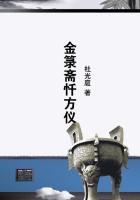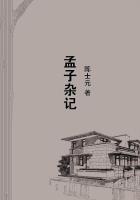Roth can spare none of these things, with the Prussians nestling there. Surely the Bishop himself, respectable Cardinal Graf von Sinzendorf, had better get out of these localities while time yet is?" "Saturday, 14th," that was the day Friedrich, at Ottmachau, wrote as above to Jordan (Letter No. 1), while the Neisse Suburbs crackled lamentably, twelve miles off, "Schwerin gets order to break up, in person, from Ottmachan to-morrow, and begin actual business on the Kaninchen Hill yonder.
"SUNDAY, 15th. Schwerin does; marches across the River; takes post on the south side of Neisse: notable to the Sunday rustics.
Nothing but burnt villages and black walls for Schwerin, in that Cony-Hill quarter, and all round; and Roth salutes him with one twenty-four pounder, which did no hurt. And so the cannonade begins, Sunday, 15th; and intermittently, on both sides of the River, continues, always bursting out again at intervals, till Wednesday; a mere preliminary cannonade on Schwerin's part;****** noise, doing little hurt: intended more to terrify, but without effect that way on Roth or the Townsfolk. The poor Bishop did, on the second day of it, come out, and make application to Schwerin; was kindly conducted to his Majesty, who happened to be over there; was kept to dinner; and easily had leave to retire to Freywalde, a Country-House he has, in the safe distance.
[<italic> Helden-Geschichte, <end italic> i. 683.] There let him be quiet, well out of these confused batterings and burnings of property.
"His Majesty's Head-quarter is at Ottmachau, but in two hours he can be here any day; and looks into everything; sorry that the cannonade does not yet answer. And remnants of suburbs are still crackling into flame; high Country-Houses of Kreuzherren, of Jesuits; a fanatic people seemingly all set against us. 'If Neisse will not yield of good-will, needs is it must be beaten to powder,'
wrote his Majesty to Jordan in these circumstances, as we read above. Roth is sorry to observe, the Prussians have still one good Bishop's-mansion, in a place called the Karlau (Karl-Meadow), with the Bishop's winter fuel all ready stacked there; but strives to take order about the same.
"WEDNESDAY, 18th. This day two provocations happened. First, in the morning by his Majesty's order, Colonel Borck (the same we saw at Herstal) had gone with a Trumpeter towards Roth; intending to inform Roth how mild the terms would be, how terrible the penalty of not accepting them. But Roth or Roth's people singularly disregard Borck and his Parley Trumpet; answer its blasts by musketry; fire upon it, nay again fire worse when it advances a step farther; on these terms Borck and Trumpet had to return.
Which much angered his Majesty at Ottmachau that evening; as was natural. Same evening, our fine quarters in the Karlau crackled up in flame, the Bishop's winter firewood all along with it: this was provocation second. Roth had taken order with the Karlau; and got a resolute Butcher to do the feat, under pretext of bringing us beef.
It is piercing cold; only blackened walls for us now in the Karlau or elsewhere. His Majesty, naturally much angered, orders for the morrow a dose of bomb-shells and red-hot balls. Plant a few mortars on the North side too, orders his Majesty.
"THURSDAY, 19th. Accordingly, by 8 of the clock, cannon batteries reawaken with a mighty noise, and red-hot balls are noticeable;and at 10 the actual bombarding bursts out, terrible to hear and see;--first shell falling in Haubitz the Clothier's shop, but being happily got under. Roth has his City Militia companies, organized with water-hose for quenching of the red-hot balls: in which they became expert. So that though the fire caught many houses, they always put it out. Late in the night, hearing no word from Roth, the Prussians went to bed.
"FRIDAY, 20th. Still no word; on which, about 4 P.M., the Prussian batteries awaken again: volcanic torrent of red-hot shot and shells, for seven hours; still no word from Roth. About 11 at night his Majesty again sends a Drum (Parley Trumpet or whatever it is)to the Gate; formally summons Roth; asks him, 'If he has well considered what this can lead to? Especially what he, Roth, meant by firing on our first Trumpet on Wednesday last?' Roth answered, 'That as to the Trumpet, he had not heard of it before. On the other hand, that this mode of sieging by red-hot balls seems a little unusual; for the rest, that he has himself no order or intention but that of resisting to the last.' Some say the Drum hereupon by order talked of 'pounding Neisse into powder, mere child's-play hitherto;' to which Roth answered only by respectful dumb-show.
"SATURDAY, 21st-MONDAY, 23d. Midnight of Friday-Saturday, on this answer coming, the fire-volcanoes open again;--nine hours long;shells, and red-hot material, in terrible abundance. Which hit mostly the churches, Jesuits' Seminariums and Collegiums;but produced no change in Roth. From 9 A.M. the batteries are silent. Silent still, next morning: Divine Service may proceed, if it like. But at 4 of the afternoon, the batteries awaken worse than ever; from seven to nine bombs going at once. Universal rage, of noise and horrid glare, ****** night hideous, till 10 of the clock;Roth continuing inflexible. This is the last night of the Siege."Friedrich perceived that Roth would not yield; that the utter smashing-down of Neisse might more concern Friedrich than Roth;--that, in fine, it would be better to desist till the weather altered. Next day, "Monday, 23d, between noon and 1 o'clock," the Prussians drew back;--converted the siege into a blockade.

